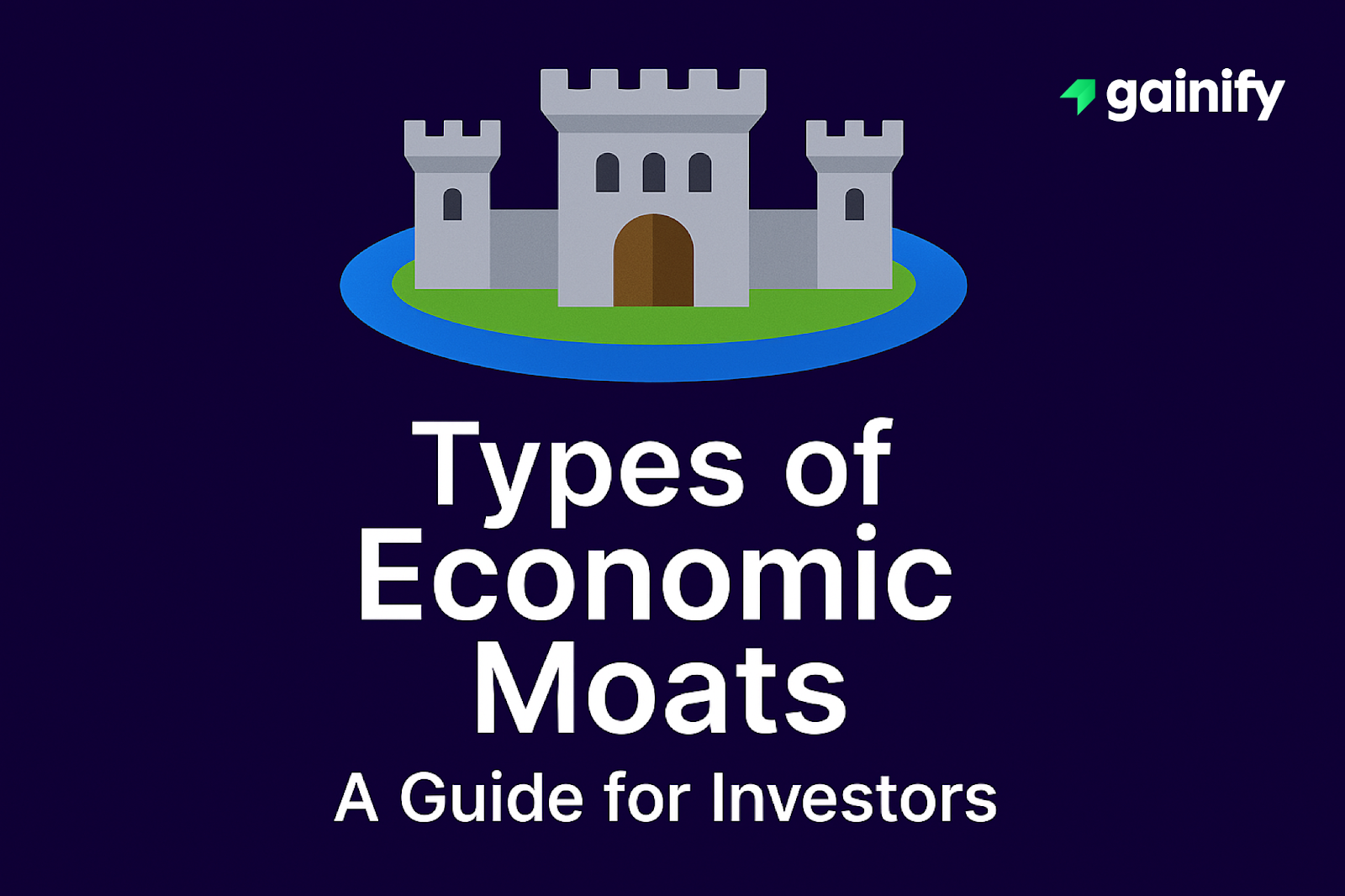Is insider trading a felony? Why is insider trading bad for markets? And who investigates insider trading when laws are broken? These are critical questions for any serious investor.
Understanding the legal, ethical, and regulatory landscape surrounding insider trading isn’t just about compliance — it’s about protecting your reputation and investment strategy. In this article, we break down the fundamentals of insider trading in the United States, explain why it’s considered a serious offense, and highlight who enforces the rules.
You’ll also find expert insights and real-world examples, including the high-profile SAC Capital case, to help you grasp the full implications of insider trading in today’s financial markets.
What Is Insider Trading?
Insider trading refers to the buying or selling of a publicly traded company’s stock or other securities by someone who has access to material, non-public information about the company. This practice is illegal in the United States when the information is used for personal gain before it is made available to the general public, giving the trader an unfair advantage.
Material non-public information includes anything that could influence an investor’s decision to buy or sell a security such as undisclosed earnings results, merger announcements, regulatory actions, or product developments. When this information is acted upon ahead of public disclosure, it undermines the integrity of financial markets.
Types of Insider Trading
Insider trading can be broken down into several key types, depending on the roles and intent of those involved:
1. Classical Insider Trading
This occurs when a corporate insider — such as a CEO, CFO, director, or employee — trades company stock based on confidential, material information they obtained through their position.
Example:
Kenneth Lay, the former CEO of Enron, sold large volumes of Enron stock based on internal knowledge of the company’s deteriorating financial health. He misled the public while privately cashing out, which is one of the most infamous examples of classical insider trading.
2. Tipper-Tippee Liability
Here, an insider (the “tipper”) shares confidential information with someone outside the company (the “tippee”), who then trades on it. Both parties can be held liable if the tipper breached a fiduciary duty and the tippee knew or should have known the information was non-public and material.
Example:
Rajat Gupta, a former Goldman Sachs board member, tipped hedge fund manager Raj Rajaratnam about confidential boardroom discussions during the 2008 financial crisis. Rajaratnam used that information to trade via his Galleon Group hedge fund, resulting in one of the largest insider trading cases in U.S. history.
3. Misappropriation Theory
This type of insider trading occurs when an individual uses confidential information obtained through a relationship of trust — such as a lawyer, banker, or consultant — to trade securities, even if they are not directly affiliated with the company involved.
Example:
James O’Hagan, a lawyer at a firm representing Grand Met during its tender offer for Pillsbury, used his firm’s confidential information to buy Pillsbury options before the deal became public. He made over $4.3 million in profits. The U.S. Supreme Court upheld the conviction, establishing the misappropriation theory as a valid basis for prosecution.
4. Remote Tippee Trading
When material non-public information is passed down a “chain” — from the original insider through several intermediaries — and eventually results in someone trading on that info, this final person is called a “remote tippee.” If the person is aware of the information’s improper origin, they too can be liable.
Example:
In the Newman v. United States case, two hedge fund managers were charged with trading on earnings leaks that passed through multiple analysts and contacts. Although their convictions were ultimately overturned due to lack of proof that they knew the tip was improperly shared, the case set important boundaries on prosecuting remote tippees.
Is Insider Trading a Felony?
Yes, insider trading can be prosecuted as a felony white-collar crime under the United States federal law when an individual willfully trades securities based on material, non-public information (MNPI) in violation of a duty of trust or confidence. This conduct is governed by Section 10(b) of the Securities Exchange Act of 1934 and Rule 10b-5 promulgated by the Securities and Exchange Commission (SEC) in the United States. When prosecuted criminally, insider trading is considered a serious white-collar crime.
Conviction Penalties for Insider Trading:
The penalties for insider trading span a wide range, depending on whether the violation is prosecuted civilly or criminally, and on the severity and intent of the offense:
- Individuals: Up to 20 years in federal prison and fines of up to $5 million
- Corporate entities: Fines up to $25 million
- SEC civil penalties: Often imposed in parallel, can include disgorgement of profits, bans from serving as officers or directors, and treble damages
These penalties underscore the fact that insider trading is not a regulatory slap on the wrist but a white-collar criminal offense with potentially life-altering consequences. Civil actions, even when not resulting in jail time, can cause irreversible reputational and professional harm.
What Determines Whether It’s a Felony?
The key elements for criminal investigation and prosecution include:
- Materiality: The information must be significant enough to influence an investor’s decision.
- Non-public status: The data is not available to the general public.
- Breach of duty: The trader must have obtained the information in breach of a fiduciary duty or a duty of trust.
- Intent (scienter): There must be proof of willful misconduct or intent to defraud.
Expert Tip: Trading on rumors or hunches (even if they prove correct) is not necessarily illegal. The legal line is crossed when someone trades on information they knew, or should have known, was confidential and obtained improperly, which could lead to criminal investigations.
Real-World Case: SAC Capital Advisors
A landmark case involved SAC Capital Advisors, the hedge fund managed by billionaire Steve Cohen. In 2013, SAC pled guilty to criminal charges of insider trading and agreed to pay $1.8 billion in penalties, the largest such settlement in history at the time.
- Outcome: While Steve Cohen himself was not criminally charged, eight SAC employees were either convicted or pled guilty to insider trading charges.
- Nature of the offenses: Trades were based on MNPI about upcoming earnings reports, pharmaceutical drug trial results, and merger activity – all obtained via informal channels or expert networks.
- Fallout: SAC was barred from managing outside capital and reorganized as Point72 Asset Management, which now manages Cohen’s private capital and later reopened to external investors under tighter scrutiny.
Enforcement Tactics and Expanding Scope
Over the past decade, regulatory federal agencies, especially ones in the United States, have significantly expanded the tools and tactics used to uncover insider trading. These include:
- Wiretaps and surveillance (legal after landmark prosecutions like Galleon Group)
- Email and messaging subpoenas
- Whistleblower programs with monetary rewards
- Advanced data analytics to detect trading anomalies
- Cooperation agreements and plea deals to secure testimony against larger conspiracies
Importantly, prosecutions are no longer limited to Wall Street traders. Corporate attorneys, consultants, accountants, senior executives, and even government employees have been charged for sharing or acting on confidential information obtained through their roles.
Who Investigates Insider Trading?
Insider trading investigations in the United States involve a coordinated effort between multiple federal agencies, each playing a distinct role in detecting, investigating, and prosecuting violations. These cases often hinge on complex webs of communications, relationships, and timing, requiring both legal and technological sophistication.
1. U.S. Securities and Exchange Commission (SEC)
The Securities and Exchange Commission (SEC) is the primary civil enforcement authority for insider trading. Its powers are derived from the Securities Exchange Act of 1934, which mandates the SEC to maintain fair and efficient markets.
- Division of Enforcement: Within the SEC, the Market Abuse Unit uses a suite of sophisticated tools — including high-frequency trade analysis and machine learning — to flag anomalies such as spikes in volume or price just before earnings announcements, mergers, or regulatory disclosures.
- Whistleblower Program: The SEC also incentivizes insiders to report violations through the Dodd-Frank Act of 2010, which allows whistleblowers to receive up to 30% of financial penalties collected in successful enforcement actions.
Civil penalties may include disgorgement of profits, fines, industry bans, and restrictions on professional licenses.
2. Department of Justice (DOJ)
When evidence suggests criminal intent or widespread conspiracy, the Department of Justice (DOJ) of the United States assumes control of the investigation, often working alongside the SEC.
- Under Title 15 of the U.S. Code (15 U.S.C. § 78j), the DOJ has the authority to bring felony charges against individuals or entities who “willfully” engage in insider trading.
- Prosecutors may pursue wire fraud, conspiracy, or obstruction of justice charges in parallel to securities fraud.
The DOJ can issue grand jury subpoenas, compel testimony, and seek prison sentences — often up to 20 years under criminal statutes for securities fraud. Plea deals are common in cases involving cooperation or insider testimony.
3. Federal Bureau of Investigation (FBI)
The FBI provides the law enforcement muscle behind many insider trading investigations, particularly where covert conduct or conspiracy is involved.
- Investigators use tools such as electronic surveillance, informants, subpoenaed email and chat logs, and wiretaps — the latter traditionally reserved for organized crime.
- In the Galleon Group case (2011), the FBI wiretapped hedge fund manager Raj Rajaratnam’s phone, capturing illegal tips and trades. This case set a precedent for treating financial fraud with the same rigor as criminal enterprises and led to 26 convictions.
Investor Takeaway
Engaging in insider trading, or even appearing complicit, carries immense legal and reputational risks. Regulatory agencies are more sophisticated than ever, and penalties for violations can be career-ending.
To remain compliant:
- Avoid trading based on non-public information
- Adhere to company blackout periods
- Consult compliance officers if in doubt to avoid internal investigation
Bottom Line: Insider trading is a felony with real consequences. Integrity, transparency, and compliance aren’t just best practices. They’re essential for protecting your future in the financial markets. Compliance matters.
Why Is Insider Trading Harmful?
Insider trading undermines the very foundation of well-functioning capital markets: trust, transparency, and fairness. When certain market participants exploit confidential information for personal gain, it creates an uneven playing field that disadvantages everyday investors.
This imbalance corrodes confidence in the integrity of financial markets. If individuals or institutions come to believe that markets are rigged in favor of insiders, participation begins to decline and with it, the healthy functioning of public capital allocation.
Why It Matters to All Investors
Public markets rely on the principle of equal access to information. Stock prices reflect the collective judgment of buyers and sellers acting on publicly available data. When insiders tip the scale by trading on material, non-public information (MNPI), they distort price discovery and gain an advantage that others cannot match.
Expert Insight: Fairness isn’t just a philosophical idea. It is the engine behind investor confidence, efficient capital formation, and economic resilience. Without it, we risk deterring participation from long-term investors such as pension funds, mutual funds, and retail savers — all of whom depend on transparent markets to build wealth.
Systemic Consequences: Long-Term Market Damage
When insider trading becomes frequent or worse, tolerated, it degrades market efficiency. Here’s what’s at risk:
- Lower liquidity: Retail investors withdraw from markets they believe are unfair, making it harder for buyers and sellers to transact efficiently.
- Weaker corporate governance: If senior executives can profit without accountability, long-term company performance and oversight suffer.
- Reduced IPO activity: Private companies may avoid going public due to fear of scrutiny or a belief that public markets are not genuinely fair.
- Capital misallocation: Investments flow to firms with insider-driven hype, not necessarily to companies with the best business models or growth prospects.
Investor Takeaway: Markets function best when everyone plays by the same rules. Insider trading introduces hidden risks that affect not just individual trades, but the broader health of the financial system. Its cost is measured not just in dollars lost, but in the erosion of trust — a far more difficult thing to rebuild.
Final Thoughts
Engaging in insider trading, or even appearing complicit, carries immense legal and reputational risks. Regulatory agencies are more sophisticated than ever, and penalties for violations can be career-ending.
To remain compliant:
- Avoid trading based on non-public information
- Adhere to company blackout periods
- Consult compliance officers if in doubt
Bottom Line: Insider trading is a felony with real consequences. Integrity, transparency, and compliance aren’t just best practices. They’re essential for protecting your future in the financial markets.




